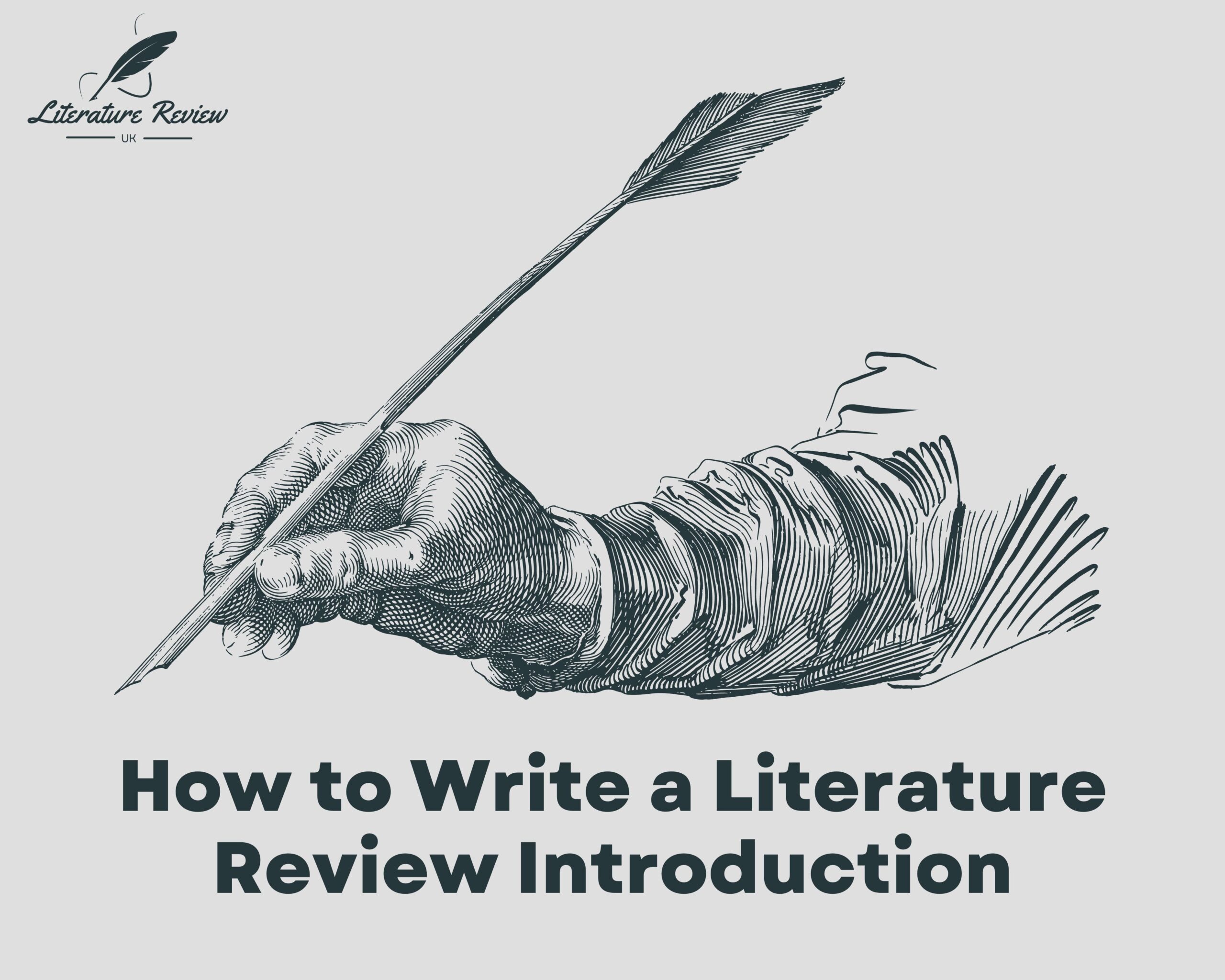
As a scholar, academic writer, or researcher, you may have come across literature reviews in your field of study. A literature review essentially entails a critical analysis of published works and research in a specific field of study. It is a vital component of any academic research, and it requires a comprehensive and systematic approach. One of the most important aspects of a literature review is the introduction. In this blog, we will explore the art of writing an engaging literature review introduction step-by-step.
Introduction to Literature Reviews
A literature review is a thorough and critical analysis of published works in a specific field of study. It is an essential step of the research process and the purpose of a literature review is to provide an overview of the current scholarly knowledge on a particular topic or research question. It enables scholars and researchers to identify gaps in knowledge, create new research questions, and build on existing research. Additionally, a literature review allows for the critical evaluation and synthesis of existing research, which is vital in the development of new theories and concepts.
Importance of a Good Literature Review Introduction
The introduction is the first section of your literature review, and it creates the first impression of your work. A good literature review introduction should be engaging, informative, and provide context for the rest of your work. The introduction should clearly state the research question or problem, the purpose of the literature review, and the scope and focus of the review. It should also outline the key themes and concepts that will be discussed in the literature review.
An effective literature review introduction should provide the reader with a clear understanding of the importance of the research question and why it matters. It should also provide a brief overview of the existing literature on the topic and highlight the gaps in knowledge that the literature review seeks to address. A good introduction should be concise and focused, and it should set the tone for the rest of the literature review.
Understanding the Purpose of the Literature Review Introduction
Before writing your literature review introduction, it is essential to understand the purpose of the introduction. The introduction serves several purposes, including:
- Providing Background Information
The introduction should provide the reader with background information on the topic under investigation. This background information should be relevant to the research question and should provide the context for the literature review.
- Identifying the Research Question or Problem
The introduction should clearly state the research question or problem that the literature review seeks to address. This research question or problem should be specific, concise, and relevant to the field of study.
- Outlining the Scope and Focus of the Literature Review
The introduction should clearly outline the scope and focus of the literature review. This includes identifying the types of literature that will be reviewed, the research methods that will be used, and the key themes and concepts that will be discussed.
Step 1: Define the Scope and Focus of Your Literature Review
The first step in writing an engaging literature review introduction is to define the scope and focus of your literature review. This involves identifying the research question or problem that the literature review seeks to address. The research question or problem should be specific, concise, and relevant to the field of study.
Once you have identified the research question or problem, you need to determine the scope of your literature review. This involves identifying the types of literature that will be reviewed, the research methods that will be used, and the key themes and concepts that will be discussed.
Step 2: Identify the Key Themes and Concepts
The next step in writing an engaging literature review introduction is to identify the key themes and concepts that will be discussed in the literature review. This involves conducting a thorough analysis of the literature and identifying the main themes and concepts that emerge.
Once you have identified the key themes and concepts, you need to organise them into a logical and coherent structure. This involves grouping related themes and concepts together and identifying the relationships between them.
Step 3: Conduct a Thorough Literature Search
The third step in writing an engaging literature review introduction is to conduct a thorough literature search. This involves identifying relevant literature and critically evaluating it to determine its relevance to the research question or problem.
When conducting a literature search, it is important to use a variety of sources, including academic journals, books, and online databases. You should also critically evaluate the quality of the sources you use and ensure that they are relevant to your research question or problem.
Step 4: Organise Your Literature Review
The fourth step in writing an engaging literature review introduction is to organise your literature review. This involves grouping related themes and concepts together and identifying the relationships between them.
Organising your literature review enables you to create a logical and coherent structure that guides the reader through the review. It also enables you to identify gaps in knowledge and areas where further research is needed.
Step 5: Write a Captivating Introduction
The final step in writing an engaging literature review introduction is to write a captivating introduction. Your introduction should clearly state the research question or problem, the purpose of the literature review, and the scope and focus of the review. It should also outline the key themes and concepts that will be discussed in the literature review.
To write a captivating introduction, you should use clear, concise, and engaging language. Your introduction should be focused and provide the reader with a clear understanding of the importance of the research question and why it matters.
Common Mistakes to Avoid in Your Literature Review Introduction
Here are some common mistakes to avoid in your literature review introduction:
- Failing to clearly state the research question or problem.
- Providing irrelevant background information.
- Failing to identify the purpose of the literature review.
- Failing to identify the scope and focus of the review.
- Failing to highlight the key themes and concepts that will be discussed.
- Using vague or unclear language.
- Using sources that are not relevant or of poor quality.
- Failing to use a logical and coherent structure.
Conclusion
By following these steps, you can create a literature review introduction that engages the reader and provides a clear understanding of the importance of your research question or problem. Finally, always proofread your work and seek feedback from your peers to ensure that your literature review introduction is effective.




